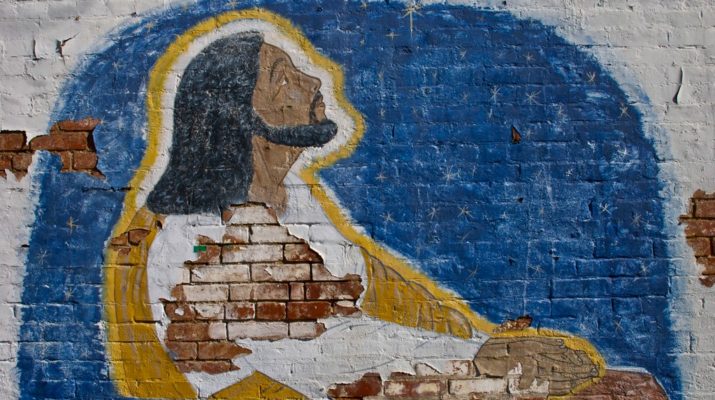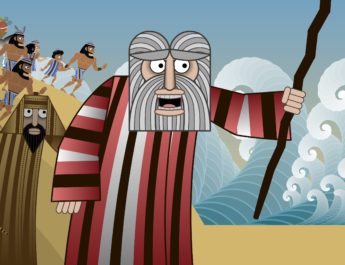John 14:1-14
Eastertide A24
BibleHub
1 “Do not let your heartsA be troubled.B BelieveC in God,D believe also in me.
Notes on verse 1
A “hearts” = kardia. Literally the heart, but figuratively mind, character, inner self, will, intention, thoughts, feelings. Also, the center of something. The word heart is only used figuratively in the Old and New Testaments. This is where “cardiac” comes from.
B “be troubled” = tarasso. 18x in NT. This is trouble, agitate, stir up. It is motion back and forth, creating inner turmoil or confusion, roiling water.
C “believe” = pisteuo. From pistis (faith, faithfulness, belief, trust, confidence; to be persuaded or come to trust); from peitho (to have confidence, urge, be persuaded, agree, assure, believe, have confidence, trust). This is to believe, entrust, have faith it, affirm, have confidence in. This is less to do with a series of beliefs or doctrines that one believes and more to do with faithfulness, loyalty, and fidelity. It is trusting and then acting based on that trust.
D “God” = theos. From Proto-Indo-European origins, meaning do, put, place. This is God or a god in general.
2 In my Father’s houseE there are many dwelling places.F If it were not so, would I have told you that I goG to prepare a place for you? 3 And if I go and prepare a place for you, I will come again and will take you to myself, so that where I am, there you may be also. 4 And you knowH the wayI to the place where I am going.”J
Notes on verses 2-4
E “house” = oikia. From oikos (house – the building, the household, the family, descendants; the temple). This is a house, household, goods, property, family, or means.
F “dwelling places” = mone. 2x in NT. From meno (to stay, remain, wait, await, continue, abide, endure; to literally stay in a place or to remain in a condition; to continue with hope and expectation). This is an abode, lodging, or residence. It is the act of abiding or the place in which one abides.
G “go” = poreuomai. From poros (ford, passageway). This is to go, travel, journey, or die. It refers to transporting things from one place to another and focuses on the personal significance of the destination.
H “know” = eido. This is to know, consider perceive, appreciate, behold, or remember. It means seeing with one’s eyes, but also figuratively, it means perceiving – seeing that becomes understanding. So, by implication, this means knowing or being aware.
I “way” = hodos. This is way, road, path, or journey. It can imply progress along a route.
J “going” = hupago. From hupo (by, under, under the authority of) + ago (lead, bring, guide, spend, drive, carry). This is to lead under so to depart, go away, or die. It is to lead away under the command of someone else, being given a mission or objective to carry out.
5 ThomasK said to him, “Lord,L we do not know where you are going. How canM we know the way?”
Notes on verse 5
K “Thomas” = thomas. 11x in NT. From Hebrew toam (twin). This is Thomas, meaning twin.
L “Lord” = kurios. From kuros (authority, supremacy). This is a respectful address meaning master or sir. It refers to one who has control or power greater than one’s own. So, it was also applied to God and Jesus as Master or Lord.
M “can” = dunamai. This is to be able, or something that is possible. It can also be empowered or being powerful. The Greek word for “miracle” (dunamis) comes from this root.
6 JesusN said to him, “I am the way,O and the truth,P and the life.Q No one comes to the Father except through me. 7 If you knowR me, you will know my Father also. From now on you do know him and have seenS him.”
Notes on verses 6-7
N “Jesus” = iesous. From Hebrew Yehoshua (Joshua, the Lord is salvation); {from YHVH (proper name of the God of Israel; the self-existent and eternal one); {from havah (to become) or from hayah (to come to pass, become, be)} + yasha (to deliver, defend, help, preserve, rescue; properly, to be open, wide or free, which implies being safe. So, in a causative sense, this is to free someone). This is Jesus or Joshua in Greek – the Lord saves or the Lord is salvation.
O “way” = hodos. Same as “way” in v4. See note I above.
P “truth” = aletheia. From a (not, without) + lanthano (unnoticed, concealed). Truth is literally that which is not or cannot be concealed. This word covers more than the sense of true versus false. It spoke of truth as that which corresponds to reality – reality as opposed to illusion. Thus, it includes, sincerity, straightforwardness, and reality itself.
Q “life” = zoe. From zao (to live, be alive). This is life including the vitality of humans, plants, and animals – it is life physical and spiritual and life everlasting.
R “know” = ginosko. This is to know, recognize, realize, perceive, learn. It is knowledge gained through personal experience
S “seen” = horao. To see, perceive, attend to, look upon, experience. Properly, to stare at and so implying clear discernment. This, by extension, would indicate attending to what was seen and learned. This is to see, often with a metaphorical sense. Can include inward spiritual seeing.
8 PhilipT said to him, “Lord, show us the Father, and we will be satisfied.”U
9 Jesus said to him, “Have I been with you all this time,V Philip, and you still do not know me? Whoever has seen me has seen the Father. How can you say, ‘Show us the Father’? 10 Do you not believe that I am in the Father and the Father is in me? The wordsW that I say to you I do not speak on my own;X but the Father who dwellsY in me does his works.
Notes on verses 8-10
T “Philip” = philippos. From philos (dear, beloved, a friend, an associate; friendship with personal affection, a trusted confidante; love from personal experience with another person) + hippos (horse). This is Philip, meaning one who loves horses.
U “satisfied” = arkeo. Literally “it is enough for us.” 8x in NT. This is to be content or satisfied. It can also mean to ward off.
V “time” = chronos. Time in the chronological sense, quantitative time or a duration of time.
W “words” = rhema. From rheo (to speak, command, make, say, speak of); from ereo (to all, say, speak of, tell; denotes ongoing speech). This is word, which implies a matter or thing spoken, a command, report, promise, thing, or business. Often used for narration, commands, or disputes.
X “on my own” = apo + emautou. Literally “from myself.”
Y “dwells” = meno. Related to “dwelling places” in v2. See note F above.
11 Believe me that I am in the Father and the Father is in me; but if you do not, then believe me because of the works themselves. 12 Very truly,Z I tell you, the one who believes in me will also do the works that I do and, in fact, will do greater works than these, because I am going to the Father. 13 I will do whatever you ask in my name,AA so that the Father may be glorifiedBB in the Son. 14 If in my name you ask me for anything, I will do it.
Notes on verses 11-14
Z “very truly” = amen + amen. From Hebrew amen (verily, truly, amen, truth, so be it, faithfulness); from aman (to believe, endure, fulfill, confirm, support, be faithful, put one’s trust in, be steadfast. Figuratively, this is to be firm, steadfast, or faithful, trusting, believing, being permanent, morally solid). This word is literally firmness, but figuratively fidelity, faithfulness, honesty, responsibility, trust, truth, steadfastness. Properly, it is to be sure, certain, or firm. This is a word of emphasis indicating that something crucial follows.
AA “name” = onoma. May be from ginosko (know, recognize, learn from firsthand experience). This is a name, authority, cause, character, fame, reputation. The name was thought to include something of the essence of the person so it was not thought to be separate from the person.
BB “be glorified” = doxazo. From doxa (glory, opinion, praise, honor, renown; particularly used as a quality of God or manifestation of God – splendor); from dokeo (to have an opinion, seem, appear, suppose; a personal judgment; to think); from dokos (opinion). This is to render or hold something as glorious, to glorify, honor, magnify, or celebrate. This is ascribing weight to something by recognizing its true value or essence.
Image credit: “Jesus Praying” mural in Louisville, KY.




